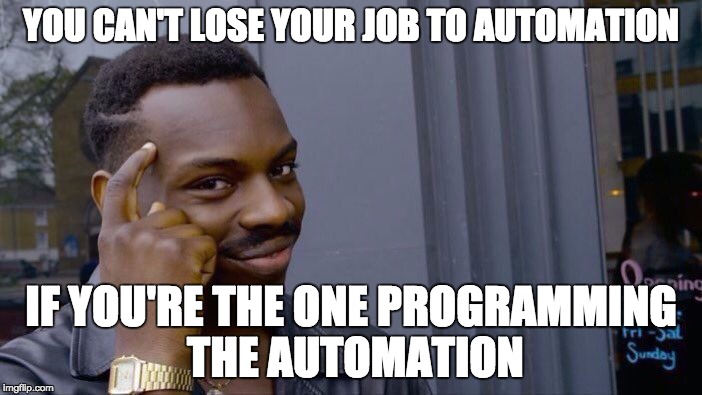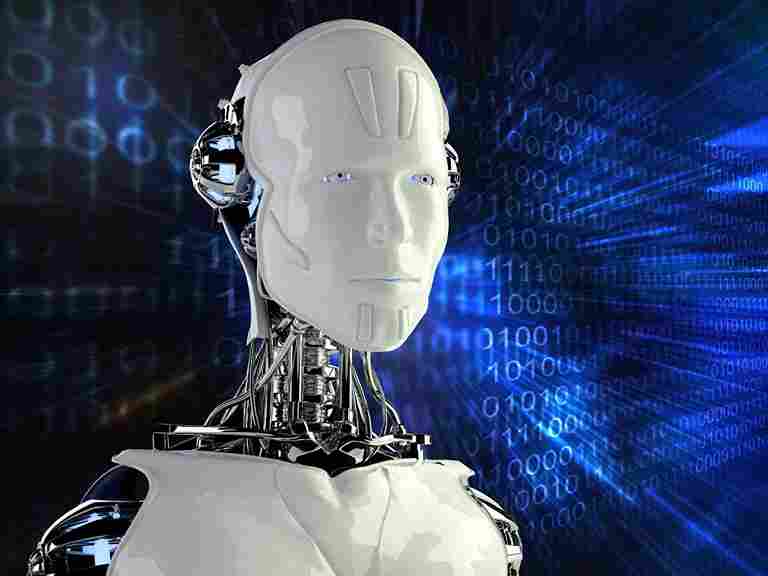Automation Technology – Need, Benefits & Impact

What is Automation
Automation is the use of technology to do high-volume, repetitive, and time-consuming tasks without the need for human interaction. Simply stated, it involves delegating the completion of tasks to machines instead of humans.
Ever fantasised about a day where a voice assistant wakes you up with a piping hot plate of breakfast in bed, dresses you up and leads you into a self-driven car that takes you to work? Ever stood in the long checkout line of a supermarket wishing the store could automatically scan your bag and deduct the bill amount from your account? This isn’t a far-fetched fantasy or a Black Mirror episode; it’s a reality that’s already in the works.

A few months ago, Seattle saw the unveiling of Amazon Go, a superstore where Amazon customers could walk in, pick essentials and walk out without waiting to checkout – sensors would detect the items they bought and send them a bill later. While this is a big win for technology, it eliminates roughly 3.5 million jobs in America alone – that of cashiers. Automation is the next big revolution looming over the horizon, and researchers from Oxford University estimate that nearly half of America’s jobs alone are in danger of being wiped out by automation. The World Economic Forum recently shared a video where renowned experts addressed the widespread panic over automation and talked about where they see technology, and jobs heading in the near future.
(Source: World Economic Forum)
Automation Technology
Over the years, technology has not just created more jobs; it has also made them more manageable. Technological advancements have significantly increased productivity and automated tasks that would otherwise take us hours to do. And while we’ve blamed it for ‘taking our jobs’ over decades, it has helped us bring more value to the table by taking on mundane tasks. Google Cloud’s Chief AI Scientist, Fei-Fei Li, says, “It’s not about replacing humans, the goal of AI machines is to be more assistive.”
Impact of Automation on Employment
A recent report by the World Bank states that approximately 69% jobs in India alone are likely to become obsolete thanks to automation. A major chunk of this percentage threatens one of India’s largest contributions to the world – our IT sector. Tasks like software testing, data entry, telemarketing, and other jobs that follow a repetitive pattern governed by a defined set of rules are about to be handed over to AI. Economist and Nobel laureate, Sir Christopher Pissarides, adds that blue collar jobs will also be replaced by technology. Several banking jobs are also likely to be eliminated, along with various other jobs like driving, radiology, customer service, and so on. While experts can’t seem to agree on how long it will take for technology to take over, there’s one thing they are all on board with – never has history seen such a rapid pace of transformation and progress.

(Image Source: imgflip.com)
Need of Automation
This isn’t the first time humanity has tackled such a challenge. The Industrial Revolution, too, brought about a disruption in employability. If history has taught us anything, it is to improvise, adapt and overcome. This is our chance to redeploy skills and bring more value to the table. India’s IT giant, Infosys, trained 9000 of its workforce to take up more advanced projects. Wipro redeployed about 7000 personnel towards more value-adding tasks. While artificial intelligence and automation will take on a bulk of low-skill work, they will also create opportunities that require a blend of communication skills, relationship-building skills, and digital know-how.
Renowned professor and author of the best-selling ‘Sapiens: A Brief History of Humankind’, Professor Yuval Noah Harari is not worried about a lack of jobs. “There will be new jobs. But the bigger question is: will people be able to reinvent themselves for these new jobs?” As long as we stay sharp, nimble, and adapt quickly to newer technology, we will have what it takes to survive this revolution.
Sir Christopher Pissarides is of the opinion that we are moving towards an age of ‘flexible employment’. He feels that automation can actually help us achieve a work-life balance by freeing up time for travel and leisure.
Trying to figure out what career works for your lifestyle and priorities in a tech-heavy world? Speak to Mentoria’s expert career counsellors and get personalised step-by-step guidance throughout your career discovery journey.
Will Automation Cause a Job Crisis
Automation is poised to wipe out around 60 million jobs around the world, but experts haven’t given up all hope just yet. Fei-Fei Li says, “50 years ago, we could not think of software engineering as a job. Today, Silicon Valley is full of that labour force.” While machines may take on some jobs, you would still need humans to create and control these machines. Li sees a lot of job scope in roles that involve designing and interaction with these machines. The CEO of Sinovation Ventures, Kai-Fu Lee, optimistically talks about the symbiotic relationship between humans and machines. “A human can do things that a machine cannot do, and together, they would do better.”
While automation can take on low-skill jobs with predictable patterns, it will be years before technology takes over roles that require creativity and building complex human relationships. We have already reached a phase where technology can compose music, do your taxes and flip your burgers at restaurants. But it will be a while before robots understand the erratic unpredictability of human nature and take on jobs involving complex human interactions.

Like it or not, automation is here, and it’s only going to continue evolving and taking up tasks. This might make you question which college degree to pursue and whether it will even be worth it. Here’s how the experts weigh in on that. Sir Christopher Pissarides says that the only thing you must consider while choosing that college degree is your own interest. Sharan Burrow of the International Trade Union Confederation states that students with an interest in humanities would thrive in this evolving scenario. “ If we really want people who can think and solve problems, you need a mix of both – technical know-how as well as a keen interest in humanities.”
As a mass, we focus on the sciences while choosing degrees. From peers to parents and even educational institutions, sciences are always valued over humanities. However, when we leave ‘arts’ or ‘humanities’ out of our educational checklist, we’re only putting our own futures at risk. Automation can easily take on scientific jobs, but the ones that involve complex human interactions will still need human assistance. No machine can predict the irrational methods of a human mind; only a human can.

Worried about your career interests facing the threat of automation? Confused about the best career path? Why don’t you take Mentoria’s test and put your mind at ease? Rest assured; if you are prepared to constantly learn and improvise, automation will actually be a boon and not a looming threat!
Benefits of Automation
1. It Saves Time.
Multiple activities can be accomplished in a short amount of time and with accuracy when technology is included in your procedures. Speed allows you to use fewer resources while also saving time.
2. Operating Costs are Reduced.
Depending on the assignment, machines can do the work of three to five people. In addition to labour savings, energy savings from automated operations can be great due to lower heating requirements.
3. The Need for Outsourcing is Reduced.
Automation cells contain a tremendous amount of potential capacity in a small package. This enables businesses to make parts that were previously outsourced in-house.
4. Increase in Production Output.
Automation has the ability to function at a steady speed, unsupervised, 24 hours a day, seven days a week. This shows that you have the ability to produce more products. New goods can be brought into the manufacturing process more quickly, and new product programming can be done more efficiently without jeopardising existing operations.
5. Improves Worker Protection
Workers are freed from harmful tasks thanks to automation. Your workers will appreciate you for protecting them from the dangers of working with harmful machines.
Worried about your career interests facing the threat of automation? Confused about the best career path? Why don’t you take Mentoria’s test and put your mind at ease? Rest assured; if you are prepared to constantly learn and improvise, automation will actually be a boon and not a looming threat!
Kick-start your career discovery journey with Mentoria & be sure to find the right career fit for you. Our 4-step career guidance solution, helps us find the right career fit for you from 3 streams, 850+ courses & 12,000+ careers.






